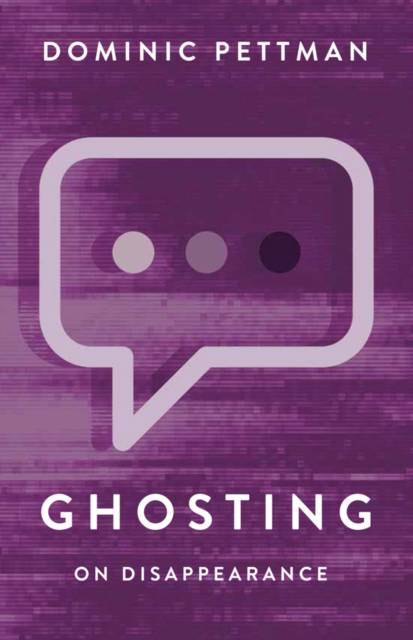
- Afhalen na 1 uur in een winkel met voorraad
- Gratis thuislevering in België vanaf € 30
- Ruim aanbod met 7 miljoen producten
- Afhalen na 1 uur in een winkel met voorraad
- Gratis thuislevering in België vanaf € 30
- Ruim aanbod met 7 miljoen producten
Zoeken
Omschrijving
Abandonment is as old as time, but ghosting is a modern twist on this ancient experience. It translates this age-old phenomenon into our modern world of screens, delete buttons and blocking options. Ghosting is not only an unpleasant experience, or cowardly act, but a symptom of our increasingly spectral - that is, mediated and virtual - relationship to the world. The overabundance of new modes of communication has invited an almost infinite number of contacts and conversations. At the same time, it has also offered an unprecedented opportunity for ignoring messages from others. And just as we invented the car crash when we invented automobiles, we also encouraged ghosting when we created the internet.
Ghosting creates an empty space in our minds: a space faithfully tracing the silhouette of the one who ghosted us. But unlike traditional ghosts, today's ghosters simply disappear, leaving behind a form of haunting that is closer to mourning: mourning for someone who is not in fact dead. In putting a kind of preemptive mourning into our everyday affairs, ghosting tells us much about the current human relationship - or non-relationship - to a shared sense of mortality, purpose, and spirit.
This book - the first sustained analysis of ghosting - traces the source of this vexed experience to, and through, our current media ecology, technological networks, political landscape, collective psychology, romantic mantras, and deep sense of social neglect.
Ghosting creates an empty space in our minds: a space faithfully tracing the silhouette of the one who ghosted us. But unlike traditional ghosts, today's ghosters simply disappear, leaving behind a form of haunting that is closer to mourning: mourning for someone who is not in fact dead. In putting a kind of preemptive mourning into our everyday affairs, ghosting tells us much about the current human relationship - or non-relationship - to a shared sense of mortality, purpose, and spirit.
This book - the first sustained analysis of ghosting - traces the source of this vexed experience to, and through, our current media ecology, technological networks, political landscape, collective psychology, romantic mantras, and deep sense of social neglect.
Specificaties
Betrokkenen
- Auteur(s):
- Uitgeverij:
Inhoud
- Aantal bladzijden:
- 110
- Taal:
- Engels
Eigenschappen
- Productcode (EAN):
- 9781509569953
- Verschijningsdatum:
- 10/09/2025
- Uitvoering:
- Paperback
- Formaat:
- Trade paperback (VS)
- Afmetingen:
- 141 mm x 214 mm
- Gewicht:
- 190 g

Alleen bij Standaard Boekhandel
+ 36 punten op je klantenkaart van Standaard Boekhandel
Beoordelingen
We publiceren alleen reviews die voldoen aan de voorwaarden voor reviews. Bekijk onze voorwaarden voor reviews.








